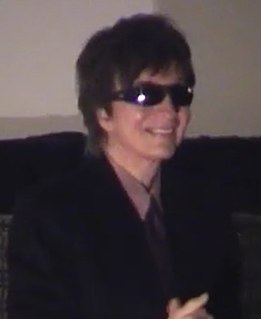A Quote by Anne Tyler
It's true that writing is a solitary occupation, but you would be surprised at how much companionship a group of imaginary characters can offer once you get to know them.
Related Quotes
For any artistic person who creates imaginary people, the art is like inhabiting the life and mind of a seven-year-old child with imaginary friends and imaginary events and imaginary grace and imaginary tragedy. Within that alternate universe, the characters do have quite a bit of free will. I know it's happening in my mind and my mind alone, but they seem to have their own ability to shape their destinies. So I'm not shooting for anything. If the characters are vulnerable it's simply because they're very human.
Sometimes when I get up after writing, I'm surprised at how my body feels. Suddenly I'm not a lanky, hungry young boy any more. It's no fun putting on ten years and fifty pounds all of a sudden. Other times, I get up and I'm pleasantly surprised that I'm not a weary innkeeper, hopeless, with bones that feel like they're made of lead. I really sink into the characters that I write.
The man who fears to be alone will never be anything but lonely, no matter how much he may surround himself with people. But the man who learns, in solitude and recollection, to be at peace with his own loneliness, and to prefer its reality to the illusion of merely natural companionship, comes to know the invisible companionship of God. Such a one is alone with God in all places, and he alone truly enjoys the companionship of other men, because he loves them in God in Whom their presence is not tiresome, and because of Whom his own love for them can never know satiety.






































